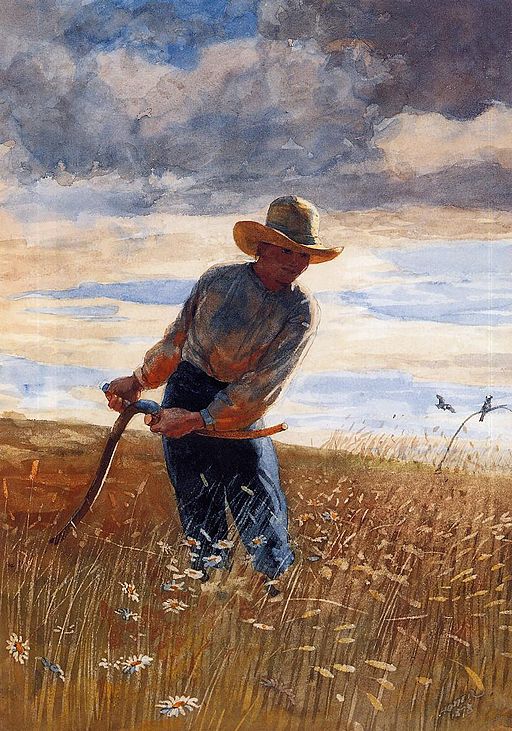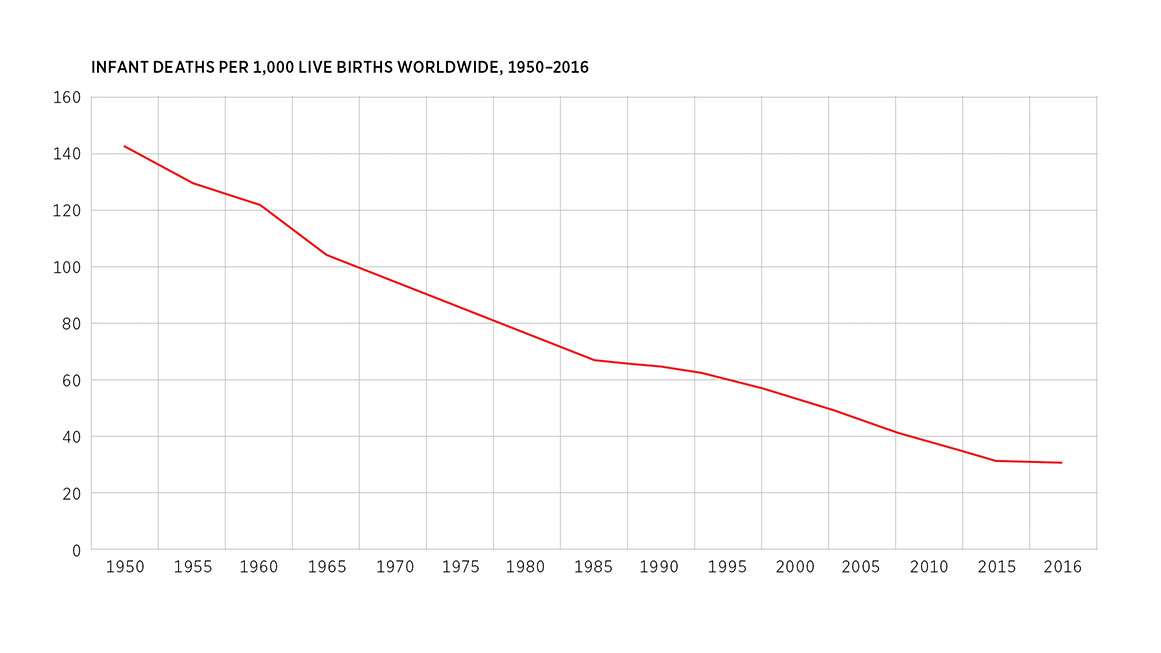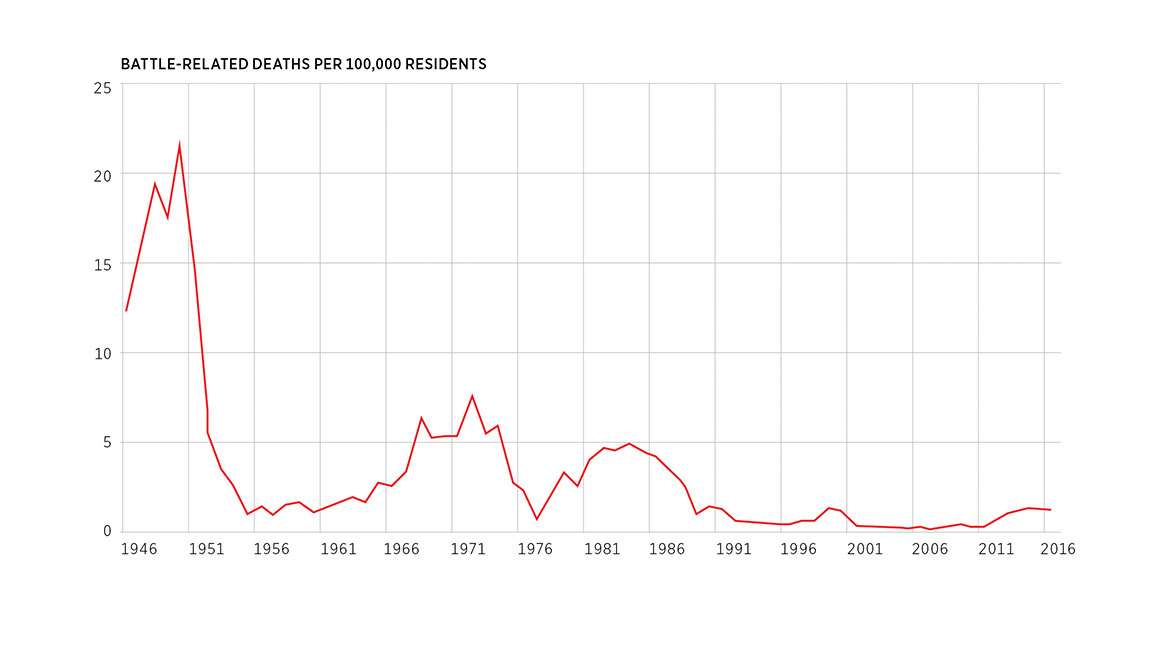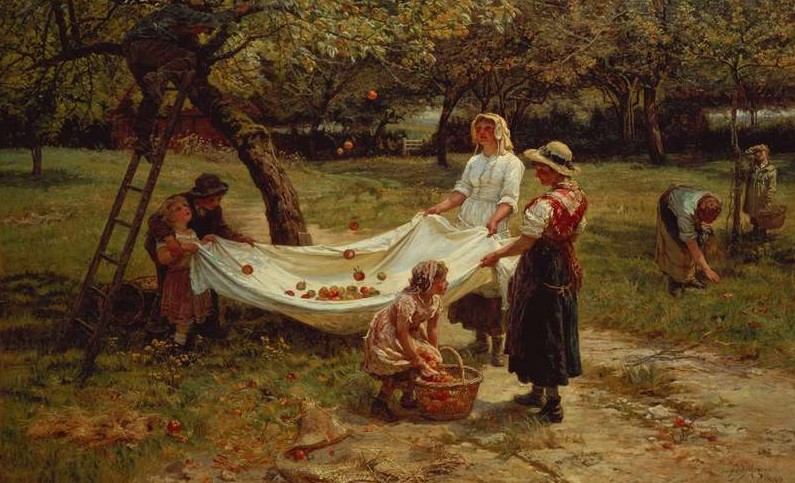|
You
can also view the message online
|
|||||||||||
 Châtenay-Malabry (FR - 92290), 4 January, 2021 EFITA newsletter / 966 - European Federation for Information Technology in Agriculture, Food and the Environment Happy New Year 2021! Do not miss the Virus Jokes in English and French > Coronavirus 4 Coronavirus 3 Coronavirus 2 Ant joke Coronavirus 1 > Virus et autres sujets Virus 6 Virus 5 Virus 4 Virus 3 Virus 2 Virus 1 > Les dernières histoire de l'oncle Paul (Jamet) (mostly in French) > Les dernières histoires de Georges Larroque(mostly in French) > Les dernières histoires de Michel Gil-Antoli (mostly in French) > Les dernières histoires de Jean Pinon et Luc Becker (mostly in French) The informatique-agricole.org site now offers you the possibility of subscribing the RSS feeds of its two newsletters See RSS feeds to implement to ensure that you continue to receive this newsletter To unsubscribe this newsletter, please contact me directely: guy.waksman(a)laposte.net if this link Unsubscribe does not work. Please note that I changed the presentation of the links that are embedded in the name of the web service. 
To correspond with me (GW), please use this address: guy.waksman(a)laposte.net To subscribe the efita newsletter (please ask your friends and colleagues to test this link) Efita Newsletters subscription Weekly newsletters about ICT in Agriculture in English and French Both newsletters have around 14000 subscribers. >>> Last weekly EFITA Newsletters in English (created in 1999) Efita Newsletters >>> Last weekly AFIA Newsletters in French (created more than 20 years ago in 1997) Afia Newsletters >>> Statistics for the last efita newsletter >>> Last issue of the afia newsletter >>> Last available satistics for the afia newsletter Anas barbariae
Cheap robots are coming for our farm jobs by taking the most brutal tasks first, by Michael J. Coren More than a million people working in America’s fields, and far more globally, are about to face competition from workers who never sleep, get tired or ask for a living wage. As field robots have gotten cheaper, a steady stream of farm jobs are being automated. Lettuce weeding is one of the first where the cost of robots now matches human labor, reports Lux Research in a new analysis. Although costs remain too high for robots to replace most farm work for low-value crops, it’s a taste of what’s to come. .../... See qz.com Robots are the ultimate job stealers. Blame them, not immigrants, by Arlie Hochschild (2018) We are invited to celebrate robots as a sign of progress, growth, greatness. That’s why they are never mentioned by fiery politicians seeking a scapegoat. .../... Robots are profitable to business, of course, since they increase productivity and profits that don’t need to be shared with workers. Andrew Puzder, former CEO of the fast-food restaurants Carl’s Jr and Hardee’s, and Donald Trump’s first choice for secretary of labor, explained in an interview with Business Insider that robots were “always polite, they always upsell, they never take a vacation, they never show up late, there’s never a slip-and-fall, or an age, sex or race discrimination case”. And so for millions of people, the line inching toward the American dream has gotten slower and longer. If automation is the big, hidden line cutter, why is it missing from our understanding of middle- and working-class resentment and from the deep story into which that resentment crystallizes? See theguardian.com My reaction (GW): I am not sure that I completely agree with Arlie Hochschild, whom I nevertheless respect enormously, because I believe that in agriculture in particular, the lack of manpower is certain in the medium term, and even in the short term. I may be wrong but… - The countries of emigration are getting richer, and it is not clear e.g. why Italians, Spaniards, Poles and even Swiss who came to work in French farms for many years, would continue to come today to take care for example of our harvests. This will also soon be the case for Romanians or Bulgarians, or even Africans. - Our birth rate in France is such that it is hard to see young French people working tomorrow on our farms. - At the height of the first wave of Covid-19, the recruitment of unemployed employees due to lockdown by farmers was not very successful. The jobs offered were not attractive enough. If we want to maintain the diversity and volumes of ours agricultural productions, it seems difficult to avoid the use of robots. - Robotization is only the continuation of the mechanization effort undertaken since the 1820s must make it possible to cope with the lack of unskilled labour, poorly paid for uninteresting tasks, and must also make it possible to create few jobs, certainly, but very qualified. In the last issue of "Der Spiegel“ (see hereafter), you can read that a flower producer in England employs 40 people and among them there are 36 immigrants. The funny aspect of the story is that in this region, 76 % of inhabitants voted “Leave” at the Brexit referendum. If the borders have to close again because of sanitary or political reasons, the robotisation i.e. further mechanization will become unescapable. Und plötzlich doch Verlustangst, Von Julia Smirnova (Der Spiegel - 2 Januar 2020) "Vote Leave": In der englischen Stadt Boston stimmten 76 Prozent der Menschen für den Brexit. Doch der erste Tag nach Ende der Übergangszeit bringt keinen Jubel, nur Sorgen. .../... "Wir haben hier keine Arbeitslosigkeit", sagt Gemeinderat Skinner. "Die Menschen kommen, weil Arbeitgeber um sie werben." Die Einwanderer arbeiten entweder in den Landwirtschaftsbetrieben rund um die Stadt oder in den Fabriken, die Lebensmittel verarbeiten. Die Stadt ist von Ackern und Gewächshäusern umgeben, die Gegend gilt als "Englands Gemüsegarten". .../... Im Familienbetrieb von Sue Lamb, die unweit von Boston Schnittblumen anbaut, kommen 36 von 40 Mitarbeitern aus Osteuropa. "Wir brauchen jeden einzelnen Migranten", sagt sie. "Ohne sie wird es nicht die Lebensmittel geben, die jeden Tag auf unseren Tellern landen." Das Ende der Brexit-Übergangszeit bereitet Lamb Probleme. Denn ab dem 1. Januar gilt in Großbritannien ein neues Migrationssystem. Wer dort arbeiten will, ob EU-Staatsbürger oder nicht, muss genügend Punkte sammeln, indem man gute Englischkenntnisse nachweist und schon vor der Einreise ein Jobangebot mit einem Mindestgehalt von 20.480 Pfund pro Jahr für Industrien mit Arbeitskräftemangel hat. Sue Lamb befürchtet, dass viele Firmen in der Blumenindustrie pleitegehen könnten, wenn diese Regeln strikt angewandt werden. Ihre Mitarbeiterinnen und Mitarbeiter verdienten durchaus zwischen 25.000 und 30.000 Pfund pro Jahr, sagt sie, jedoch nicht mit einem 40-Stunden-Vertrag. Dafür müssten sie bis 55 Stunden pro Woche arbeiten. Die Menschen, die dazu bereit seien, seien »fantastisch«, sagt Lamb. Sie hofft, dass die meisten ihrer osteuropäischen Mitarbeiterinnen bleiben werden. Sehen spiegel.de Nothing is more responsible for the good old days than a bad memory: The Last Load by George Cole (1810-1883) Webinar VITIVIN-ISAGRI: José Ramón Lissarrague - Testimonio Técnico VIÑEDOS Jan 12, 2021, 1:00 PM - 2:00 PM (your local time) - Online Ver Isagri España Efita 2021 Conference 25 -26 May 2021 - Digital Agriculture Web Conference The European Federation for Information Technology in Agriculture, Food and the Environment (EFITA) would like to invite you at the first EFITA International online Conference in 2021. As a way to keep the momentum and engagement of our society, while maintaining the plans for the 2022 physical EFITA conference, this conference and its format are planned as a response to the unpredictable situation created by the COVID-19. This event is an opportunity to bring together engineers, scientists, technicians, aca-demics and industry people in a new way to exchange knowledge, ideas, to present innovations and to discuss the state-of-the-art and future use of ICT in the agri-food sector and bio-resources production sectors. See efita2021.com Contact: Dionysis BOCHTIS E-mail: d.bochtis(a)certh.gr Nothing is more responsible for the good old days than a bad memory: Harvest field by George Cole (1810-1883) How did we the future yesterday?? See the incredible collection developed by Alain Fraval Agriculture Software Development Intellias empowers established agribusinesses and AgriTech startups with its agriculture software development services to devise innovative ways for farmers to run their operations. We help our clients create agriculture software that let farmers make data-driven decisions resulting in higher profitability and sustainable business growth. With this aim, we’ve established a Digital Lab to develop, validate, and scale agricultural software by providing senior engineering teams and technology expertise in precision farming, GPS guidance systems, remote IoT sensing, AI automation, cloud computing, location and mapping services. > Farm management systems Develop custom farm management systems to improve decision-making, optimize operations, and maximize farm production and profits > Aerial imaging and analytics Capture field images using drones and satellites to build precision maps for monitoring crop yields, field conditions, and weather changes > Indoor and vertical farming Create software for vertical farms built within urban spaces to control climate conditions and track crop growth with image recognition > Supply chain and food security Increase transparency using blockchain, eliminate counterfeit products by applying DLT, and empower small farms with smart contracts > Smart IoT sensors Apply IoT connectivity to collect field data and remote sensing for monitoring irrigation, crop yields, soil moisture, and weather conditions > Robotics and automation Guide and steer tractors and harvesters by combining AI, ISOBUS, and GPS navigation to increase efficiency and minimize manual efforts > Weather monitoring and predictions Monitor and analyze data collected from IoT sensors, satellites, and historical databases, train machine learning algorithms to predict weather See intellias.com Nothing is more responsible for the good old days than a bad memory: Returning From Market, Dusty Road, Surrey by George Cole (1810-1883)
Agtech in practice: Practical answers on precision tech – Part 1 How do North American farmers make precision tech pay? In Part 1: Clinton Monchuk from Saskatchewan. See futurefarming.com Field robots: Moondino rice paddy robot for autonomous weeding The latest version is ready for production and will be officially launched in 2021. See futurefarming.com Precision planting: Ukrainian agtech start-up helps farmers increase margins Digital Field helps farmers adjust production costs through the use of precise planting tools. See futurefarming.com
AgFunder: Transforming the agrifood ecosystem, The Mills Fabrica (feat. AgFunder founding partner Michael Dean) AgFunder is a US-based venture capital firm, investing in technologies that enable the agri-food industry to approach a more sustainable future. In this interview, its founder Michael Dean talks us through the recent development of the landscape of agri-food innovation, and how the firm supports innovators that make changes happen within this sector. See agfundernews.com Nothing is more responsible for the good old days than a bad memory (?????): Woman Carrying Firewood and a Pail, 1858 - 1860, by Jean-Francois Millet Delivering the goods: Food supply chain tech market map & predictions for 2021, AFN, by guest contributors: Seana Day & Brita Rosenheim See agfundernews.com Nothing is more responsible for the good old days than a bad memory: The Harvest Cradle by John Linnell How farmers can be part of the climate solution, by Lauren Wolahan .../... Growers said they can mitigate the impact of large-scale farming by embracing practices such as no-till farming, which uses machines that don’t tear up the earth, and so doesn’t release the carbon stored in the soil. They have also called for planting cover crops—like oats, radishes, and cereal rye—in between rows of corn or hay to cover any bare earth, keeping carbon trapped in the ground. .../... “Farmers have a tremendous opportunity to be part of the climate solution,” said Ernie Shea, president of Solutions from the Land, a non-profit advocating for better farming practices to address climate change. “That’s why so many of us are here.” See qz.com Stop Arguing over GMO Crops (Scientific American) The vast majority of the scientific community agrees on both their safety and their potential to help feed the world sustainably. .../... The vast majority of the scientific community agrees on the safety and potential of genetically engineered crops. Over 150 Nobel Laureates signed an open letter supporting genetically engineered crops in 2016 that stated, “Opposition based on emotion and dogma contradicted by data must be stopped.” The American public cannot have selective hearing when we say we will listen to scientists. We need to fight for the facts on genetic engineering and for the validity of the experts in this field the same way we fight for data and truth on climate change. We need to come together to focus on evidence to make decisions instead of letting old emotional battles divide us and block solutions. President-elect Biden made a plea to a highly divided American people in his acceptance speech, “It’s time to put away the harsh rhetoric. To lower the temperature. To see each other again. To listen to each other again. To make progress, we must stop treating our opponents as our enemy.” The same message applies to the established factions in this nation regarding the use of genetic engineering in agriculture. The stakes are too high to let the antagonism continue any longer. We need to act in the manner in which we voted—supportive of science and hopeful for a more sustainable and unified future. See scientificamerican.com Nothing is more responsible for the good old days than a bad memory: The Reaper by Winslow Homer
The gifts of progress by Steven Pinker See Steven Pinker Bill Gates and Rashida Jones Ask Big Questions I teamed up with actress and writer Rashida Jones to create a podcast that tackles some of the biggest questions facing us today: Is it too late to solve climate change? Does everybody lie? Is inequality inevitable? You can listen to each episode below and even access exclusive bonus content by becoming a Gates Notes Insider. 5. Can people really change? 4. Is it too late to stop climate change? 3. Why do we believe lies? 2. Is inequality inevitable? 1. What will the world look like after COVID-19? See gatesnotes.com Global happyness > Marian Tupy: Things Are Not As Bad As They Appear > Self-reported Life Satisfaction vs GDP per capita, 2017
Pestilence, war, famine, and death are all on the decline. Impending Defeat for the Four Horsemen of the Apocalypse, by By Ronald Bailey Most of you think that the world, in general, is getting worse. You are wrong. Citing uncontroversial data on major global trends, I will prove to you that this dark view of humanity's prospects is, in large part, badly mistaken. .../... But many of those problems are already in the process of being ameliorated. For example, the falling prices of renewable energy sources offer ever-stronger incentives to switch away from fossil fuels. And hyper-efficient agriculture is globally reducing the percentage of people who are hungry—while simultaneously freeing up land, so that forests are now expanding in much of the world. The fact that we denizens of the early 21st century are much richer than any previous generation accounts for much of the good news. Thanks to technological progress and expanding global markets, the size of the world's economy since 1820 has grown more than 100-fold while world population grew somewhat less than eightfold. In concrete terms, world gross product grew from $1.2 trillion (in 2011 dollars) to more than $116 trillion now. Global per capita GDP has risen from $1,200 per year in 1820 to more than $15,000 per person currently. The astonishing result of this increase in wealth is that the global rate of absolute poverty, defined as living on less than $1.90 per person per day, fell from 84 percent in 1820 to 55 percent in 1950. According to the World Bank, 42 percent of the globe's population was still living in absolute poverty as late as 1981. The latest World Bank assessment reckons that the share of the world's inhabitants living in extreme poverty fell to 8.6 percent in 2018. In 1990 about 1.9 billion of the world's people lived in extreme poverty; by 2018, that number had dropped to 660 million. .../... See humanprogress.org Sobre el “islamismo político” (en El País) La histórica feminista alemana Alice Schwarzer, fundadora de la mítica revista ‘Emma’, advierte de que la pandemia puede resultar un golpe demoledor para la igualdad de las mujeres. P. Usted considera el islamismo político “uno de los mayores problemas de nuestro tiempo”. R. Creo que el islamismo es una ideología totalitaria y el fascismo del siglo XXI. Está tomando al islam como rehén. Los musulmanes informados, creyentes o no, son las primeras víctimas. En Occidente asistimos a la propaganda del pañuelo, la lucha para que no se permita a las niñas ir a clases de natación, el intento de asociaciones islámicas de influir en la escuela… Merkel nunca se tomó nada de esto en serio. En Alemania, la mayor fuente del islam político son asociaciones ortodoxas que se han infiltrado en nuestra sociedad desde los noventa. P. ¿Debería Alemania adoptar polémicas posiciones de defensa del laicismo como las francesas? R. Por supuesto. Macron tiene razón. En Alemania solo se habla de asesinatos, pero son la punta del iceberg. Si hay gente muerta, es demasiado tarde. El verdadero problema es la infiltración islamista: en la educación, las universidades, el sistema jurídico. P. La acusan de enemiga del islam por su batalla contra el hiyab. ¿No puede una mujer ponerse hiyab libremente? R. No, las feministas como yo lo excluimos. En los setenta había un millón de turcos en Alemania. Nadie llevaba pañuelo en la cabeza, tal vez alguna anciana de Anatolia. Nadie rezaba en público, la fe era un asunto privado que se convirtió en público después de la cruzada islamista. Hay que respetar los motivos subjetivos de las mujeres, pero desde Jomeini en 1979 el pañuelo ha sido la bandera del islam político. Lo justifican porque dicen que una mujer decente debe cubrirse, que solo su marido puede verla. ¿Se supone que eso debe complacer a una feminista? Ver elpais.com Nothing is more responsible for the good old days than a bad memory: Harvesting by Mykola Pymonenko Irish joke: Catholics or Pedestrians? An Irishman was in New York patiently waiting to cross a busy street. There was a traffic cop manning the crossing. The cop stopped after a few minutes and told those waiting to cross the road, ‘Okay pedestrians’, he said, ‘Let’s go’. The Irishman stood waiting, growing more and more frustrated. After five minutes he shouted to the cop, ‘Here! The pedestrians crossed ages ago – when’s it time for the Catholics?!’ The distribution of this efita newsletter is sponsored by vitisphere.com Please, contribute to the content of your efita newsletter, and advertise your events, new publications, new products and new project in this newsletter. Without your support, it will not survive! Contact: Guy WAKSMAN E-mail: guy.waksman(a)laposte.net To read this newsletter on our web site See Afia The archives of this newsletter See Afia About the EFITA mailing list You can use the efita moderated list (> 15000 subscribers) to announce any event / product / web site / joke (!) related to IT in agriculture, environment, food industry and rural areas. If you want to subscribe a friend, please fill in his form. If you do not wish to receive our messages, please fill in the following form... |














